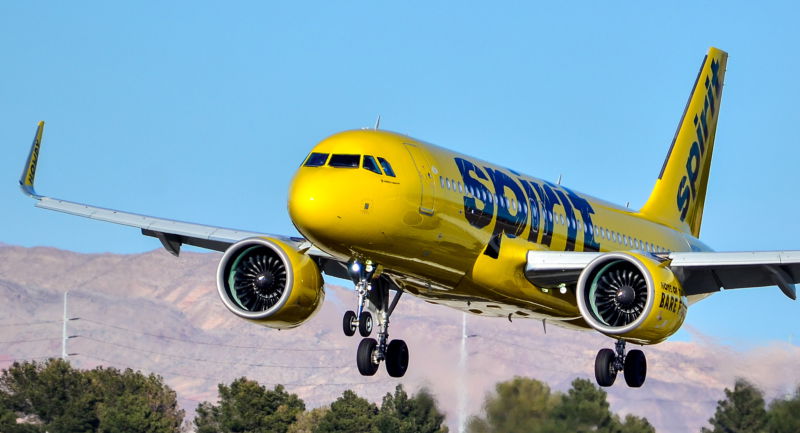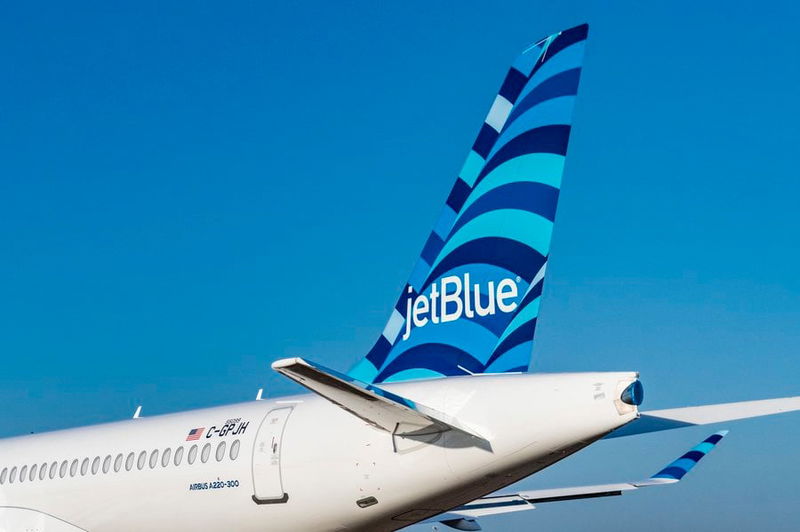It’s Official: JetBlue And Spirit Airlines To Merge

Featured image: Tomás Del Coro/Flickr | CC BY-SA 2.0 Generic
After months of haggling, Spirit Airlines has kicked Frontier to the curb, and will accept JetBlue’s $3.8 billion merger offer.
In an official statement, it has been confirmed that JetBlue will acquire Spirit for $33.50 per share in cash, including a prepayment of $2.50 per share in cash payable upon Spirit stockholders’ approval of the transaction and a ticking fee of $0.10 per month starting in January 2023 through closing. This adds up to an aggregate fully diluted equity value of $3.8 billion and an adjusted enterprise value of $7.6 billion.
“We are excited to deliver this compelling combination that turbocharges our strategic growth, enabling JetBlue to bring our unique blend of low fares and exceptional service to more customers, on more routes,” said Robin Hayes, chief executive officer, JetBlue. “We look forward to welcoming Spirit’s outstanding Team Members to JetBlue and together creating a customer-centric, fifth-largest carrier in the United States. Spirit and JetBlue will continue to advance our shared goal of disrupting the industry to bring down fares from the Big Four airlines. This combination is an exciting opportunity to diversify and expand our network, add jobs and new possibilities for Crewmembers, and expand our platform for profitable growth.”
Ted Christie, president and chief executive officer, Spirit, said, “We are thrilled to unite with JetBlue through our improved agreement to create the most compelling national low-fare challenger to the dominant U.S. carriers, and we look forward to working with JetBlue to complete the transaction. Bringing our two airlines together will be a game changer, and we are confident that JetBlue will deliver opportunities for our Guests and Team Members with JetBlue’s unique blend of low fares and award-winning service. We especially appreciate the commitment of our Spirit Family throughout this process. Today’s exciting announcement reflects JetBlue’s admiration for Spirit and a shared belief in what the combined airline can bring for our Guests.”
Pending regulatory approval
The merger still requires regulatory approval, as well as approval by Spirit Airline stockholders, with an expected completion by the first half of 2024 (assuming all goes to plan). In the mean time, both JetBlue and Spirit will continue operating as separate entities, and all respective loyalty programs will remain the same until the merger is finalized.
JetBlue has presented a number of points in favor of the merger as follows:
- JetBlue is arguing that the big four (American, Delta, United and Southwest) control more than 80% of the U.S. market share, and says that the merger will be the only way to viably compete to “disrupt legacy carrier pricing in the current landscape.”
- Even after the completion the merger, the JetBlue-Spirit brand will still have only 9% of the market share compared to 13 and 23% by the smallest and biggest of the big four.
- JetBlue has had the best record when it comes to disrupting economy and business class offering with its all-coach service and Mint business class.
- The Northeast Alliance with American Airlines is accelerating growth of JetBlue’s low-fare service in the Northeast where Delta Air Lines and United Airlines previously had limited competition, and where JetBlue was locked out of future growth in slot-constrained and congested airports.
- JetBlue has made the upfront commitment to divest Spirit’s holdings at the NEA airports to allow for allocation to other ultra-low-cost carriers.
- Should the deal fall through for antitrust reasons, JetBlue will pay Spirit a reverse break-up fee of $70 million and (ii) stockholders of Spirit a reverse break-up fee of $400 million less any
amounts paid to stockholders of Spirit prior to termination.

Winners
- Assuming all goes well, the obvious winners here are the Spirit Airlines shareholders.
- Other low cost carriers like Frontier and Avelo can benefit from newly available slots at northeast airports.
- JetBlue now has access to a larger share of slots at big west coast airports such as LAX, Las Vegas and even Phoenix. They may have missed out of the Virgin America buyout after being beaten by Alaska, but they came prepared this round.
- JetBlue also now has access to an arsenal of new and fuel efficient jets as Spirit is set to collect a total of 137 Airbus A320neos and 26 A321neos. Spirit also ordered 31 A319neos, even though it would not surprise us if JetBlue tried to shuffle that order for something bigger. On top of these new jets, they also have equally qualified pilots and cabin crew members to operate them.
Losers
- Given how differently the two airlines operate, the biggest losers are Spirit customers. JetBlue isn’t exactly known for being low cost anymore as they are slowly transitioning towards a mix of low cost and legacy pricing and offerings. Spirit’s customers value very low fares, so it will be seen how well (or not) this merger turns out to be. The assumption at this point is that Spirit’s branding and model will eventually go away in favor of JetBlue’s.
- The traveling public will also feel the knock on effect if JetBlue bumps up prices on Spirit routes. With one less major low cost competitor keeping pressure on the market, ticket prices could slowly increase over time across the board.



